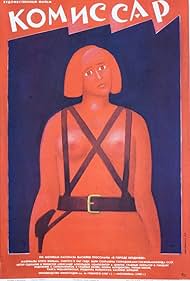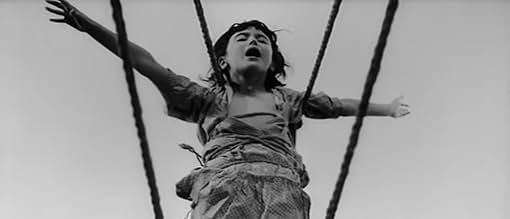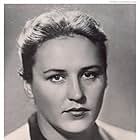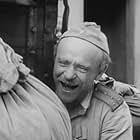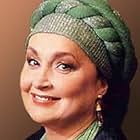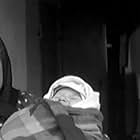IMDb RATING
7.5/10
1.7K
YOUR RATING
Klavdia Vavilova, a Red Army cavalry commissar, is waylaid by an unexpected pregnancy. She stays with a Jewish family to give birth and is softened somewhat by the experience of family life.Klavdia Vavilova, a Red Army cavalry commissar, is waylaid by an unexpected pregnancy. She stays with a Jewish family to give birth and is softened somewhat by the experience of family life.Klavdia Vavilova, a Red Army cavalry commissar, is waylaid by an unexpected pregnancy. She stays with a Jewish family to give birth and is softened somewhat by the experience of family life.
- Awards
- 9 wins & 4 nominations
Lyubov Kats
- Children
- (as Lyuba Kats)
Pavel Levin
- Children
- (as Pavlik Levin)
Dmitri Kleyman
- Children
- (as Dima Kleyman)
Leonid Reutov
- Chief of Staff
- (as L. Reutov)
Viktor Ilichyov
- Appearing
- (uncredited)
Semen Morosov
- Appearing
- (uncredited)
- Director
- Writers
- All cast & crew
- Production, box office & more at IMDbPro
Storyline
Did you know
- TriviaAfter making the film, Aleksandr Askoldov lost his job, was expelled from the Communist Party, charged with social parasitism, exiled from Moscow, and banned from working on feature films for life. He was told that the single copy of the film had been destroyed. Mordyukova and Bykov, major Soviet movie stars, had to plead with the authorities to spare him of even bigger charges. The film was shelved by the KGB for twenty years.
- ConnectionsFeatured in Women Filmmakers in Russia (1988)
Featured review
The Russian film Komissar was shown in the U.S. with the translated title The Commissar (1967). It was co-written and directed by Aleksandr Askoldov. This film wasn't released until 1988, 21 years after it was produced. Not only were we deprived of the film, but Aleksandr Askoldov, the director, was never permitted to direct a movie again. The explanation for this delay, and this punishment, was that "the film depicted the Red Army in a negative way." That sounds realistic enough, until you see the movie. To me, the Red Army was depicted in a heroic fashion. There must have been subtle offenses, not clear to a non-Russian.
The movie is set in Ukraine, where the Red and White armies clashed in the Russian Civil War. Nonna Mordyukova portrays Klavdia Vavilova, a Red Army commissar, who is fighting against the Whites in the post-revolutionary war. She becomes pregnant, and is billeted with a Jewish family during her pregnancy.
Anti-Semitism lies just below the surface of the entire film. Both the Reds and the Whites were guilty of it, although I believe it was worse from the Whites at that time. We don't see actual pogroms during the movie. A synagogue is boarded up when the Whites take over the town, as are many houses. It wasn't clear to me whether these were all houses with Jewish families.
However, there's a horrific scene with three of the Jewish children terrify their own sister. They tell her to "come up out of the cellars," and then they "shoot her" with their toy weapons. Obviously, they are playing out a scene that they've witnessed.
The acting is outstanding throughout the film. Rolan Bykov plays the husband, Yefim. (It's interesting that Bykov himself was Jewish.) Raisa Nedashkovskaya plays Maria, Yefim's wife. Both Rykov and Nedashkovskaya are excellent actors. Yefim is a strange character--in some ways brave, and in some ways childish. He'd rather dance than work, and he'll break into song when one would least expect it.
Maria, his wife, is a more traditional role. The only problem with the casting is that Nedashkovskaya is incredibly beautiful. That would work if she were a young, newly married wife. However, the couple live in poverty, with many children to care for. Beauty doesn't last long in situations like that. Realistically, Maria would be worn down and broken by that point in her life. In the movie, she's still youthful and radiant.
The protagonist of the film, Klavdia Vavilova, is a loyal Communist and she is as brave and strong as any man in the movie. In fact, when she's having the baby, and she's told to push, she has a flashback to a moment when she and other soldiers are trying to push a heavy artillery caisson over a hill.
As a mother, with a newborn child, she is torn between her baby and her duty to the Red Army. Nonna Mordyukova, who portrays Klavdia Vavilova, was a great Soviet actor. She is excellent in this role. She looks like a strong, tough Ukrainian woman, who would not be out of place in the Red cavalry. Director Askoldov could probably have chosen a young beauty for the role of Klavdia. Instead, he went with an actor with broad shoulders and strong features. Mordyukova inhabits the role, and the movie's greatness is due in large part to her work.
We were very fortunate to see this film at Rochester's Dryden Theatre in the George Eastman Museum. The Dryden owns an excellent 35mm print, and seeing it projected on the large screen was a wonderful experience. However, it will work almost as well on a small screen. The Commissar is available on DVD. Don't miss it!
The movie is set in Ukraine, where the Red and White armies clashed in the Russian Civil War. Nonna Mordyukova portrays Klavdia Vavilova, a Red Army commissar, who is fighting against the Whites in the post-revolutionary war. She becomes pregnant, and is billeted with a Jewish family during her pregnancy.
Anti-Semitism lies just below the surface of the entire film. Both the Reds and the Whites were guilty of it, although I believe it was worse from the Whites at that time. We don't see actual pogroms during the movie. A synagogue is boarded up when the Whites take over the town, as are many houses. It wasn't clear to me whether these were all houses with Jewish families.
However, there's a horrific scene with three of the Jewish children terrify their own sister. They tell her to "come up out of the cellars," and then they "shoot her" with their toy weapons. Obviously, they are playing out a scene that they've witnessed.
The acting is outstanding throughout the film. Rolan Bykov plays the husband, Yefim. (It's interesting that Bykov himself was Jewish.) Raisa Nedashkovskaya plays Maria, Yefim's wife. Both Rykov and Nedashkovskaya are excellent actors. Yefim is a strange character--in some ways brave, and in some ways childish. He'd rather dance than work, and he'll break into song when one would least expect it.
Maria, his wife, is a more traditional role. The only problem with the casting is that Nedashkovskaya is incredibly beautiful. That would work if she were a young, newly married wife. However, the couple live in poverty, with many children to care for. Beauty doesn't last long in situations like that. Realistically, Maria would be worn down and broken by that point in her life. In the movie, she's still youthful and radiant.
The protagonist of the film, Klavdia Vavilova, is a loyal Communist and she is as brave and strong as any man in the movie. In fact, when she's having the baby, and she's told to push, she has a flashback to a moment when she and other soldiers are trying to push a heavy artillery caisson over a hill.
As a mother, with a newborn child, she is torn between her baby and her duty to the Red Army. Nonna Mordyukova, who portrays Klavdia Vavilova, was a great Soviet actor. She is excellent in this role. She looks like a strong, tough Ukrainian woman, who would not be out of place in the Red cavalry. Director Askoldov could probably have chosen a young beauty for the role of Klavdia. Instead, he went with an actor with broad shoulders and strong features. Mordyukova inhabits the role, and the movie's greatness is due in large part to her work.
We were very fortunate to see this film at Rochester's Dryden Theatre in the George Eastman Museum. The Dryden owns an excellent 35mm print, and seeing it projected on the large screen was a wonderful experience. However, it will work almost as well on a small screen. The Commissar is available on DVD. Don't miss it!
- How long is The Commissar?Powered by Alexa
Details
Box office
- Gross US & Canada
- $388,029
- Runtime1 hour 50 minutes
- Color
- Sound mix
- Aspect ratio
- 2.35 : 1
Contribute to this page
Suggest an edit or add missing content

